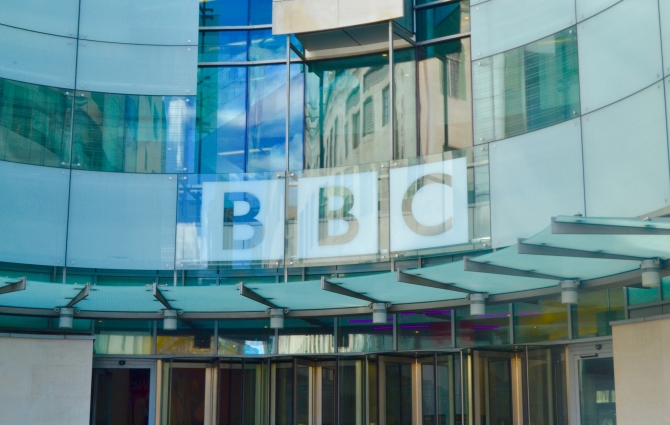 Ahead of the UK’s general election this week (4 July), Tom Chivers of the Media Reform Coalition (MRC) looks at the policies relating to media that are outlined in the major parties’ manifestos.
Ahead of the UK’s general election this week (4 July), Tom Chivers of the Media Reform Coalition (MRC) looks at the policies relating to media that are outlined in the major parties’ manifestos.
The result of July’s election has seemed like a foregone conclusion even before it was announced on May 22nd. The weeks of lacklustre TV debates, robotic interviews and wafer-thin journalistic scrutiny have only served to emphasise the widespread failures in our media.
Our 2024 Media Manifesto makes the case for a radically new approach to media policy: reclaiming media’s place at the heart of our democracy, with progressive reforms to public service media, the national press, local media and Big Tech platforms.
But what are the major political parties’ visions for the role of media in our society and politics? What specific policies are being offered in their manifestos as part of the ‘platform for government’? How will the next generation of MPs, ministers and party leaders address the systemic failures across our media?
The BBC and public service broadcasting
The Labour manifesto states the party will “work constructively” with the BBC and the UK’s PSBs, “so they continue to inform, educate and entertain people, and support the creative economy by commissioning distinctively British content”. This short paragraph is the sole mention of any media policy in all of Labour’s manifesto, and the language is scarcely different from Conservative policy on PSBs since its 2022 White Paper. Given that the next government will lead the next BBC Charter Review (due by 2027), this may be interpreted as an over-cautious incoming administration not wishing to prejudge that process. However given the scale of challenges facing the the UK’s public media, Labour’s silence on even moderate reforms to the BBC – such as reversing 14 years of destructive cuts or ending political interference in BBC governance – highlights the deeply worrying lack of ambition in Labour’s platform for government.
The Conservative manifesto suggests the Tories would happily continue their campaign of unaccountable, behind-closed-doors interference in the BBC. It pledges to continue with its secretive BBC ‘Funding Review’, as well as introducing a new BBC complaints process “so the BBC does not mark its own homework”. This is an ironic choice of words given the Conservatives’ unflinching support for the failed press self-regulator IPSO (see below). The proposal is stranger still as the current BBC complaints model, introduced by the Conservatives in the current Royal Charter, has allowed government appointees – like BBC Board member Robbie Gibb, ex-Tory spin doctor and a founding figure of GB News – to pressure and cajole BBC editorial positions in the government’s favour. Instead of ending the historic pattern of government interference, the Conservative manifesto offers even more political attacks on the BBC’s independence.
In a welcome change of tone, the Liberal Democrat manifesto pledges to “protect the BBC, S4C, BBC Alba and Channel 4 as independent, publicly owned, public service broadcasters”. This is paired with proposing to “properly fund the impartial BBC World Service from the Foreign Office budget”, reversing the Conservatives’ decision to withdraw government funding – effectively reducing the BBC’s licence fee income by around £250m every year since 2014.
Both the Scottish National Party and Plaid Cymru manifestos call for the devolution of broadcasting powers. Plaid Cymru calls for establishing an independent Broadcasting Authority for Wales, with powers to “regulate, oversee and secure accountability for broadcasting and communication within Wales”, echoing the findings of the Welsh government’s independent expert review. The SNP similarly call for the devolution of powers, increased investment in Scottish broadcasting and “statutory parity of esteem” for Gaelic broadcasting. This long-standing disparity in protections for Welsh and Gaelic services was raised persistently throughout debates on the recently passed Media Act, but was ultimately ignored in the government’s rush to ‘wash up’ legislation before the dissolution of Parliament.
Reform UK’s policy on the BBC, like the rest of its ‘contract’ with voters, is a hyper-charged (if brief) rendition of far-right Conservatives’ most aggressive and regressive demands. It commits to scrapping the TV licence fee – described as “taxation without representation” – and commencing unspecified reforms of the BBC, stating “in a world of on-demand TV people should be free to choose”. There is conclusive evidence that an advertising-funded BBC would both cripple the BBC’s income and significantly disrupt the commercial broadcasting sector, while subscription would both cost audiences more and reduce investment in core public service content. However with Reform challenging the Tories at the polls, and with a possible Farage-led takeover of the rump Conservative Party, these baseless free market attacks on public media could form the core of the British right after the election.
Although the Green Party manifesto does not explicitly mention the BBC or public service broadcasters, it does provide a clear acknowledgement that “the media sector urgently needs to be reformed”, and commits that elected Green MPs will push for “effective regulation of both traditional and social media, safeguarding our democracy and the spaces for shared cultural expression”.
The next government will need to embrace this need for urgent and systemic reform if it seeks to protect our public media, rather than tinkering on the margins of the struggling model we have now. Following the passage of the Media Bill, the principles and regulatory oversight of public service broadcasters has been significantly narrowed and weakened. We need to empower our valued broadcasting institutions to adapt to the emerging media landscape, enshrining universal provision as a public good and creating new independent, democratic mechanisms for funding, regulating and governing our public media.
Press self-regulation and Leveson 2
The Conservatives’ 2024 manifesto doubles down on its pattern of policies-for-press favours, recommitting its opposition to Part 2 of the Leveson Inquiry – which the government cynically scrapped in 2018. The recently passed Media Bill/Act also allowed the Conservative government to deliver its long-promised gift to the corporate press – the repeal of legislation designed to give victims of press malpractice affordable access to justice, introduced following the phone hacking scandal.
Both the Greens’ and Liberal Democrats’ manifestos, on the other hand, commit fully to recommencing these crucial investigations into widespread malpractice and corruption in the press, as well as pledging to support truly independent and effective self-regulation of the press as recommended by Leveson in 2012. The Liberal Democrats further pledge a “comprehensive ‘Anti-SLAPP Law’ to provide robust protection for free speech”, which would help to end the ability of the rich and powerful to threaten and silence legitimate journalism.
Although Labour was pivotal in both instigating the Leveson Inquiry and implementing its recommendations for reform, the party’s 2024 manifesto does not even address the issue let alone commit to much-needed reforms. Recent reports indicate that the Labour leadership has slumped back into the same old pattern: cosying up with the corporate press, while shying away from (or possibly even abandoning) its previous commitments to support the victims of press abuse.
A decade on from the Leveson Inquiry, even as new revelations of industry-wide phone hacking and corporate coverups are revealed, and as the failed industry-run regulator IPSO continuously turns a blind eye to unethical and inaccurate reporting, the dominant newspaper groups still hold a dangerous influence over British democracy. We need a major public interest reforms to promote and uphold the highest standards in journalism.
Media ownership and local media
As Starmer and Sunak scrabble for endorsements from media moguls and right-wing billionaires, neither the Labour nor Conservative manifestos offer anything to tackle the UK’s twin crises of concentrated media ownership and a collapsing local media sector.
The Green Party manifesto includes two distinct proposals to address these: a tightening of existing media ownership rules “so that no individual or company owns more than 20% of a media market”; and “new grants to encourage growth of a wider range of civic minded local news publishers”.
Ofcom’s status quo approach to monitoring media concentration – particularly in news – has allowed the same handful of corporations to dominate our media. A media ownership cap would go a long way to limit their excessive influence on the national conversation, and encourage a greater diversity of voices and interests in journalism.
A publicly-funded local news grant would similarly have a transformative impact on the local news sector, particularly in the growing number of ‘news deserts’ across the UK which has suffered decades of cuts, consolidation and corporate mismanagement.
Digital rights
Proposals for digital technologies and social media feature far more widely across the parties’ manifestos. Yet many of these pledges stop short of grasping the deep structural problems caused by the domination of Big Tech platforms over our shared online spaces.
Both the Green and the Lib Dem manifestos call for a Digital Bill of Rights to enshrine citizens’ freedoms and protections on online platforms. The Lib Dems emphasise the need to protect everyone’s “participation without being subjected to harassment and abuse”, pairing this with an end to “the bulk collection of communications data”. The Greens propose making the UK “a leading voice on standards for the rule of law and democracy in digital spaces”, outlining requirements to safeguard elections and address “foreign interference, social media and declining confidence in democracy”.
Many of the manifestos also seek to tackle the vast inequalities in digital access, with various proposals for improving national (particularly rural) broadband connectivity: Labour pledging “full gigabit and national 5G coverage by 2023”; the Lib Dems supporting “local solutions so no property is left out”; Plaid Cymru backing a “Welsh Broadband Infrastructure Company”; and the SNP proposing “a statutory social tariff” for broadband and mobile tariffs.
Media Manifesto 2024: How to transform our failing media
A healthy democracy depends on a free and independent media. If the next government seeks to deliver any kind of progressive social change, it will not be able to ignore the overwhelming case for radical media reform.
We need a fair, free and genuinely democratic media system that informs inclusive public debate, represents and empowers citizens as equals, and nourishes our democracy by speaking truth to power.
MPs in the next parliament seeking to turn the page on the last 14 years should commit to breaking with the decades of failed media policy, and support the proposals in the MRC’s Media Manifesto 2024.
This post was originally published on the Media Reform Coalition blog, and is reposted with thanks. It represents the views of the author and not the position of the Media@LSE blog, nor of the London School of Economics and Political Science.
Featured image: Photo by Toni Pomar on Unsplash





